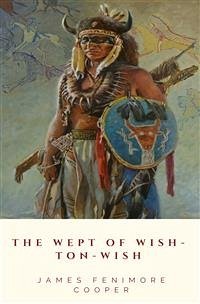Perhaps more than any other nineteenth-century American author, James Fenimore Cooper sought to represent the culture and struggles of Native Americans. Although his depictions of indigenous tribes still bear traces of the endemic racism that was part of the larger American culture at the time, they did represent a literary breakthrough in the era. In the novel The Wept of Wish-Ton-Wish, Cooper shifts the focus to the earliest encounters between Native Americans and Puritan settlers. Protagonist Captain Mark Heathcote sets out to build a pioneer community of his own and tries to maintain a peaceful relationship with the tribal peoples in the area.
Hinweis: Dieser Artikel kann nur an eine deutsche Lieferadresse ausgeliefert werden.
Hinweis: Dieser Artikel kann nur an eine deutsche Lieferadresse ausgeliefert werden.









